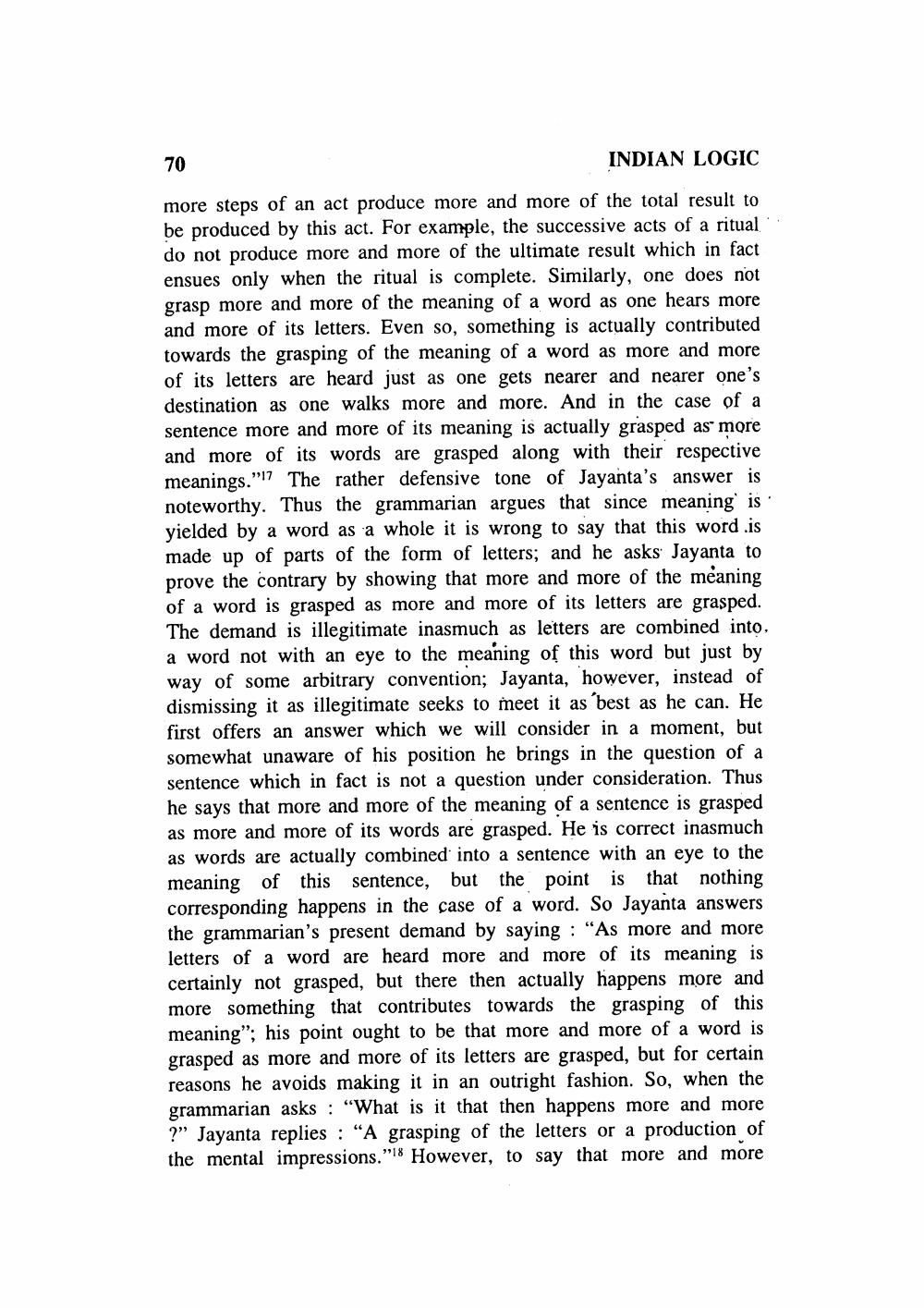________________
70
INDIAN LOGIC
more steps of an act produce more and more of the total result to be produced by this act. For example, the successive acts of a ritual." do not produce more and more of the ultimate result which in fact ensues only when the ritual is complete. Similarly, one does not grasp more and more of the meaning of a word as one hears more and more of its letters. Even so, something is actually contributed towards the grasping of the meaning of a word as more and more of its letters are heard just as one gets nearer and nearer one's destination as one walks more and more. And in the case of a sentence more and more of its meaning is actually grasped as more and more of its words are grasped along with their respective meanings."'? The rather defensive tone of Jayanta's answer is noteworthy. Thus the grammarian argues that since meaning is yielded by a word as a whole it is wrong to say that this word.is made up of parts of the form of letters, and he asks Jayanta to prove the contrary by showing that more and more of the meaning of a word is grasped as more and more of its letters are grasped. The demand is illegitimate inasmuch as letters are combined into, a word not with an eye to the meaning of this word but just by way of some arbitrary convention; Jayanta, however, instead of dismissing it as illegitimate seeks to meet it as best as he can. He first offers an answer which we will consider in a moment, but somewhat unaware of his position he brings in the question of a sentence which in fact is not a question under consideration. Thus he says that more and more of the meaning of a sentence is grasped as more and more of its words are grasped. He is correct inasmuch as words are actually combined into a sentence with an eye to the meaning of this sentence, but the point is that nothing corresponding happens in the case of a word. So Jayanta answers the grammarian's present demand by saying: "As more and more letters of a word are heard more and more of its meaning is certainly not grasped, but there then actually happens more and more something that contributes towards the grasping of this meaning"; his point ought to be that more and more of a word is grasped as more and more of its letters are grasped, but for certain reasons he avoids making it in an outright fashion. So, when the grammarian asks : "What is it that then happens more and more ?" Jayanta replies : “A grasping of the letters or a production of the mental impressions." However, to say that more and more




